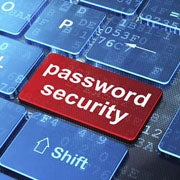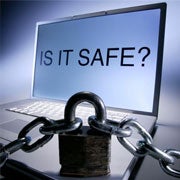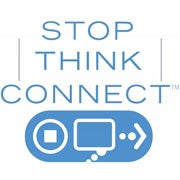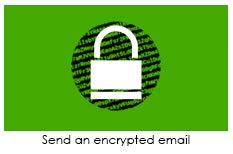Cyber Security Awareness
Did you know that most people fall victim to hackers because of Weak or Shared Passwords?
Tips to Keep You and Your Information Safe:
- Consider downloading an app like “LastPass” on your mobile phone to generate a secure password for each application or website you use (it will even keep it safely stored for you and best of all, LastPass is Free!)
- Don’t reuse old passwords (the older they are, the more likely they have already been compromised)
- Don’t use the same password on multiple sites; you never know when one login is compromised. Use LastPass for a new password and keep it safely stored using the app.
- Never share your password with anyone for any reason (even co-workers and family) – What they don’t know can hurt you!
- If you store a copy of all your accounts and passwords on your laptop or tablet, make sure it is individually password-protected using a unique, strong password (google strong password or use LastPass to generate one for you!)
Preparation for the Upcoming Holidays
Did you know that some holiday fundraising is not legitimate?
Tips for Keeping your Money Safe:
- Carefully read emails sent to you; if you didn’t sign up for something, delete the email and don’t click on any links or download attachments. (the majority of these are phishing attempts)
- Be careful not to hand your cards over to just anyone for “giving” promotions or donations during the holidays.
- Carry some cash if you want to gift over the holiday season, especially at malls and shopping centers where donations are processed using handheld devices (they could be scanners designed to take your card information for later fraudulent purchases)
- Please resist the urge to sign up for recurring donations; this information passes through many hands-on it’s way to the organization you are giving to and can result in personal data falling into the wrong hands.
Did you know that WIFI can be dangerous?
Tips for Staying Safe on WIFI
- Don’t save card information on your phone or browser
- If someone can access your computer or device through a stolen phone or unsecured WIFI, they will be able to easily use any saved card information they find in your cookies and saved information
- Always use WIFI that requires a password!
- Don’t use unsecured WIFI networks and do personal banking or buy gifts
- IF your kids are using your devices, make sure they have their access credentials.
- What they don’t know about accessing insecure sites or buying things with your cards can open you up to identity compromise and theft of personal credit card information.
Did you know that it’s easy to turn on advanced security features on phones and laptops?
Tips for Keeping your Electronics Safe While Travelling
- Turn on laptop encryption – this is a checkbox setting in the Settings on all laptops and most handheld devices
- Turn on mobile phone encryption and add a pin/passcode to prevent unauthorized access
- Register your phone with your provider’s “Find my phone” service or use the Google service– with this; you can quickly locate your lost phone using any computer
- Turn on Multi-Factor Authentication or “Enhanced Security” on your applications you use most.
- This option is available in settings and only takes a few minutes.
- This selection prevents anyone from using your accounts if they guess or steal your password. (they would need your phone to complete the access)
- Please don’t share your passwords with anyone and store them securely on your mobile phone using an app such as LastPass.
Preparation for the Upcoming Holidays
Did you know that some holiday fundraising is not legitimate?
Tips for Keeping your Money Safe:
- Carefully read emails sent to you; if you didn’t sign up for something, delete the email and don’t click on any links or download attachments. (the majority of these are phishing attempts)
- Be careful not to hand your cards over to just anyone for “giving” promotions or donations during the holidays.
- Carry some cash if you want to gift over the holiday season, especially at malls and shopping centers where donations are processed using handheld devices (they could be scanners designed to take your card information for later fraudulent purchases)
- Please resist the urge to sign up for recurring donations; this information passes through many hands-on it’s way to the organization you are giving to and can result in personal data falling into the wrong hands.
Did you know that WIFI can be dangerous?
Tips for Staying Safe on WIFI
- Don’t save card information on your phone or browser
- If someone can access your computer or device through a stolen phone or unsecured WIFI, they will be able to easily use any saved card information they find in your cookies and saved information
- Always use WIFI that requires a password!
- Don’t use unsecured WIFI networks and do personal banking or buy gifts
- IF your kids are using your devices, make sure they have their access credentials.
- What they don’t know about accessing insecure sites or buying things with your cards can open you up to identity compromise and theft of personal credit card information.
Did you know that it’s easy to turn on advanced security features on phones and laptops?
Tips for Keeping your Electronics Safe While Travelling
- Turn on laptop encryption – this is a checkbox setting in the Settings on all laptops and most handheld devices
- Turn on mobile phone encryption and add a pin/passcode to prevent unauthorized access
- Register your phone with your provider’s “Find my phone” service or use the Google service– with this; you can quickly locate your lost phone using any computer
- Turn on Multi-Factor Authentication or “Enhanced Security” on your applications you use most.
- This option is available in settings and only takes a few minutes.
- This selection prevents anyone from using your accounts if they guess or steal your password. (they would need your phone to complete the access)
- Please don’t share your passwords with anyone and store them securely on your mobile phone using an app such as LastPass.
Keep Secure Communications
Did you know that clicking on a link or an attachment can allow an intruder access to your whole home or company network?
Tips to Prevent You From Falling Prey to Phishing and Social Engineering Schemes:
- Always verify the sender of an email or anyone calling your home or cell phone
- Questions to ask yourself:
- Am I expecting this email/call?
- Is the email address correct?
- Are they asking for something out of the normal?
- When in doubt, call or text the person to verify the sender. If they are a company advertising a job or something else – go directly to their website to investigate and check the Better Business Bureau before providing any personal information.
- Never provide personal information about yourself or anyone in your family unless you can verify the person or company and they have a real reason to have this information (watch out for unsolicited job offers via email)
- Never download attachments without knowing the sender (it could be phishing)
- Don’t click on links sent to your mobile phone or reply to voicemails threatening you (if it seems like a surprise, it probably isn’t legitimate)
Whenever you need to send an email to a recipient outside of CSN, it is very important that it be encrypted, especially if it contains Personally Identifiable Information (PII) of students, staff, or faculty. PII is defined by the US Government as:
Information which can be used to distinguish or trace an individual's identity, such as their name, social security number, biometric records, etc. alone, or when combined with other personal or identifying information which is linked or linkable to a specific individual, such as date and place of birth, mother’s maiden name, etc.
If you have received spam or a suspicious email, follow the steps below:
- Do not click any links within the email.
- Forward the message to spam@csn.edu so the OTS team can investigate the email.
- Delete the email.
If you have clicked any links within the email or opened any suspicious attachments, contact the OTS Help Desk.




